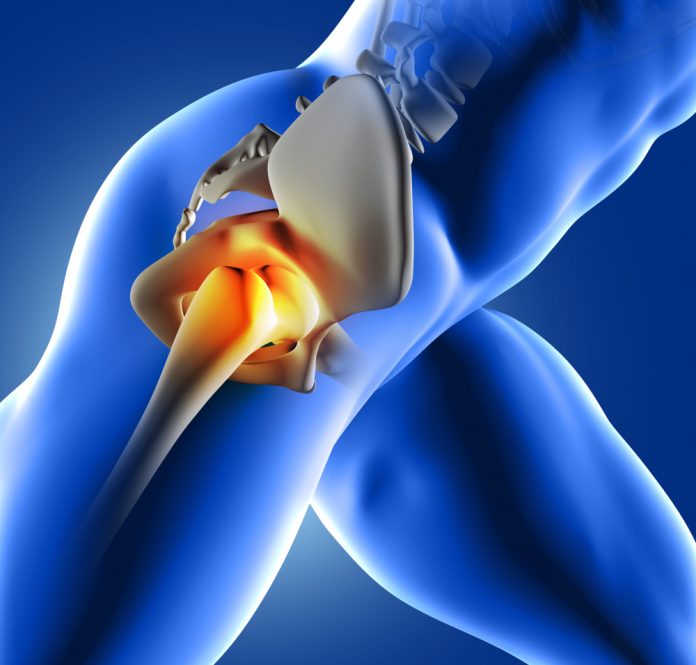Hip replacement surgery, also commonly referred as total hip arthroplasty, is a common procedure that is executed to provide relief from pain and improve mobility in individuals dealing with hip problems such as arthritis, fractures in hip, or other degenerative hip disorders.
While hip replacement surgery can greatly improve quality of life for many patients, it is essential to be aware of warning signs that may indicate complications or issues post-surgery.
In this blog post, we will explore some important warning signs to watch out for after hip replacement surgery.
- Persistent Pain or Discomfort
While it is normal to experience some pain and discomfort immediately following hip replacement surgery, persistent or worsening pain beyond the expected recovery period may be a cause for concern.
If you notice that your pain is not improving with rest, medication, or physiotherapy, it is crucial to consult your orthopedic doctor.
Persistent pain may indicate complications such as infection, implant loosening, or nerve damage, which require prompt medical attention.
- Swelling and Inflammation
Swelling and inflammation are common side effects of hip replacement surgery and are typically expected during the initial stages of recovery.
However, if you pay attention to the significant swelling, redness due to inflammation, or warmth around the surgical site that persists or aggravates over time, it could be a symptom of infection.
Infections following hip replacement surgery can be serious and may require antibiotics or further intervention to prevent complications.
- Difficulty or Instability while Walking
One of the primary goals of hip replacement surgery is to improve mobility and restore normal walking patterns.
However, if you experience persistent difficulty or instability while walking, such as limping, stiffness, or a sensation of the hip giving way, it could indicate issues with the hip implant or surrounding tissues.
This may require further evaluation by your surgeon to determine the underlying cause and appropriate treatment.
- Limited Range of Motion
Following hip replacement surgery, it is common to experience some limitations in range of motion as your body adjusts to the new hip joint.
However, if you observe a significant downfall in your potential to move your hip or execute daily activities such as bending, squatting, or lifting objects, it may demonstrate complications such as implant dislocation, tissue damage, or stiffness over the joints.
Physiotherapy and exercises prescribed by your orthopedic specialist can help improve range of motion and address any underlying issues.
- Clicking, Popping, or Grinding Sensations
While some clicking or popping sensations around the hip joint may be normal during the initial stages of recovery, persistent or worsening clicking, popping, or grinding sensations could be indicative of issues with the hip implant or surrounding tissues.
These sensations may occur during movement or weight-bearing activities and may be accompanied by pain or discomfort.
If you experience these symptoms, it stands important to consult your joint replacement surgeon for further evaluation.
- Changes in Leg Length or Alignment
Following hip replacement surgery, your orthopedic surgeon will take measures to ensure that your legs are of equal length and properly aligned.
However, in some cases, patients may notice changes in leg length or alignment after surgery, which can affect gait and overall mobility.
If you observe significant discrepancies in leg length or alignment, it is important to bring this to the attention of your doctor for assessment and possible correction.
- Fever or Chills
Fever and chills are common signs of infection and should not be ignored, especially in the weeks following hip replacement surgery.
Prompt medical attention is necessary to identify and cure infections early to abstain from serious complications from happening.
- Difficulty with Activities of Daily Living
Hip replacement surgery is intended to improve quality of life and enable patients to resume normal activities of daily living with less pain and greater mobility.
However, if you experience persistent difficulty or inability to perform basic activities such as walking, standing, or getting in and out of chairs, it may indicate complications or issues with the hip implant.
Visiting your orthopedic expert and consulting them can help in identifying the underlying causes and determining the most suitable form of treatment.
- Unusual Drainage or Wound Issues
After hip replacement surgery, drainage from the surgical site is expected, and your medical team will monitor this closely during your hospital stay and follow-up visits.
However, if you notice unusual drainage that is excessive, foul-smelling, or accompanied by pus or blood, it could indicate a wound infection or other complications.
Similarly, if you experience wound issues such as opening of the incision, redness, or separation of the skin, it is necessary to seek medical attention promptly.
- Changes in Mental or Emotional Well-Being
Getting healed from hip replacement surgery can be physically and emotionally tough, and it is quite common for patients to go through mood swings or emotional well-being being hampered during their healing process.
However, if you notice persistent feelings of sadness, anxiety, or depression that interfere with your daily life or recovery, it is important to seek support from your doctor or therapist.
Emotional support and counseling sessions can prove to be useful to navigate the difficulties that come in your recovery process after undergoing hip replacement surgery.
Conclusion:
Total hip replacement surgery in India is a major procedure that can greatly improve quality of life for individuals suffering from hip conditions.
However, it is important to be aware of warning signs that may indicate complications or issues post-surgery.
By monitoring your symptoms closely and seeking prompt medical attention if you notice any warning signs, you can ensure a safe and successful recovery from hip replacement surgery.
For more information on joint replacements or hip replacement surgery cost in India, contact your ortho expert and get your answers.





